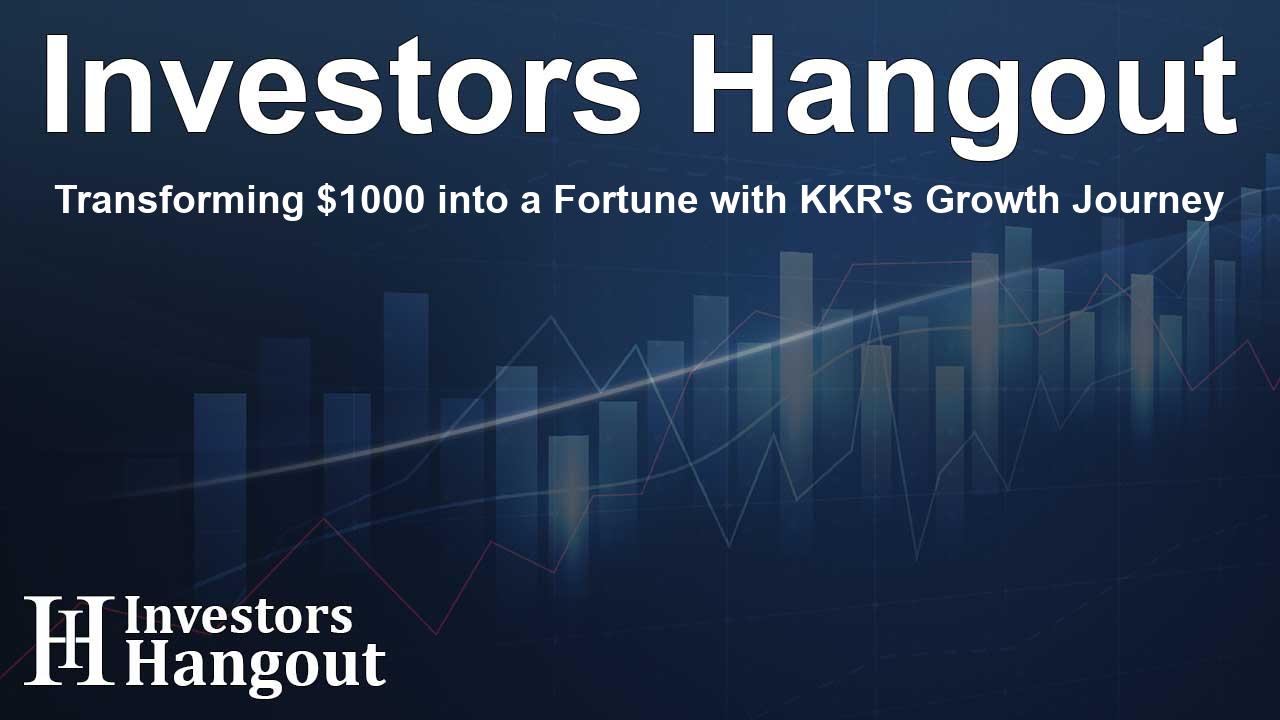Transforming $1000 into a Fortune with KKR's Growth Journey

Understanding the Growth of KKR Investments
KKR (NYSE: KKR) has shown impressive performance in the stock market over the past several years, providing investors with strong returns. It has outshined many market expectations, delivering an annualized return of 29.59%, which is 14.94% higher than the market average. KKR's current market capitalization sits at a robust $113.81 billion, showcasing its strong standing in the financial landscape.
Investing $1000 in KKR: A Profitable Decision
Imagine if you had made a $1000 investment in KKR stock five years ago. Today, that investment would be worth around $3542.43, given the current trading price of approximately $127.74. This remarkable growth highlights the company's effective strategies and ability to navigate market fluctuations successfully.
What Contributes to KKR's Success?
Several factors contribute to KKR's remarkable performance in the investment world. Its strategic focus on creating long-term value through disciplined investment processes has attracted a diversified portfolio. This approach allows KKR to manage risks effectively while capitalizing on growth opportunities.
The Power of Compounded Returns
One essential takeaway from KKR's investment journey is the impact of compounded returns. The longer your investment stays in the market, the more potential it has to grow. KKR exemplifies how investment growth can be exponential over time, emphasizing the importance of patience and strategic investment choices.
The Strategic Vision of KKR
KKR remains committed to generating value for its investors through a clear strategic vision. The company invests in sectors such as technology, healthcare, and consumer markets, aligning its operations with global economic trends. By diversifying its investments, KKR can mitigate risks while pursuing substantial returns—making it a formidable player in the investment arena.
Future Outlook for KKR Investors
The outlook for KKR remains optimistic. As the company adapts to evolving market conditions, it keeps implementing innovative strategies likely to yield impressive returns. For current and prospective investors, understanding KKR's direction can provide valuable insights into potential investment opportunities.
Frequently Asked Questions
1. What is KKR's stock performance over the past five years?
Over the past five years, KKR has outperformed the market with an average annual return of 29.59%.
2. How much would a $1000 investment in KKR be worth today?
A $1000 investment in KKR five years ago would be worth about $3542.43 today.
3. What factors contribute to KKR's success?
KKR's success is attributed to its disciplined investment strategies, diversification, and focus on long-term value creation.
4. How important are compounded returns in investing?
Compounded returns are crucial as they demonstrate how investments grow exponentially over time, highlighting the benefits of long-term investment.
5. What sectors does KKR invest in?
KKR invests in various sectors, including technology, healthcare, and consumer markets, allowing it to adapt to economic trends.
About The Author
Contact Addison Perry privately here. Or send an email with ATTN: Addison Perry as the subject to contact@investorshangout.com.
About Investors Hangout
Investors Hangout is a leading online stock forum for financial discussion and learning, offering a wide range of free tools and resources. It draws in traders of all levels, who exchange market knowledge, investigate trading tactics, and keep an eye on industry developments in real time. Featuring financial articles, stock message boards, quotes, charts, company profiles, and live news updates. Through cooperative learning and a wealth of informational resources, it helps users from novices creating their first portfolios to experts honing their techniques. Join Investors Hangout today: https://investorshangout.com/
The content of this article is based on factual, publicly available information and does not represent legal, financial, or investment advice. Investors Hangout does not offer financial advice, and the author is not a licensed financial advisor. Consult a qualified advisor before making any financial or investment decisions based on this article. This article should not be considered advice to purchase, sell, or hold any securities or other investments. If any of the material provided here is inaccurate, please contact us for corrections.
